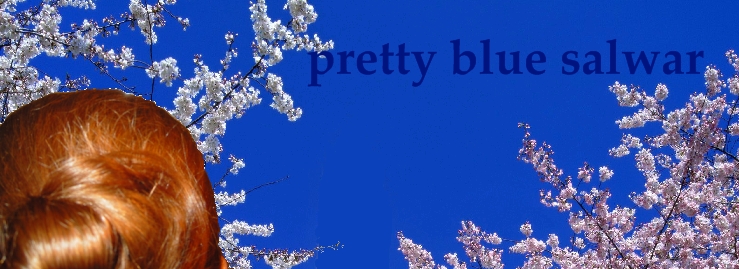Read The Subtle Knife in two stretches over the course of the day, the first in a Starbucks, which I don't recommend (I had gotten a gift card from my temp agency, and had an absolutely disgusting, oversugared mocha coffee thing).
Anyway. Will probably start Amber Spyglass tonight, but I want to write down my thoughts before I peek ahead.
The most interesting part of the philosophy of Subtle Knife can be summed up in two quotes:
Both the Oblation Board and the Specters of Indifference are bewitched by this truth about human beings: that innocence is different from experience. The oblation Board fears and hates Dust, and the Specters feast on it, but it's Dust both of them are obsessed by.
Her last conscious thought was disgust at life; her senses had lied to her. The world was not made of energy and delight but of foulness, betrayal, and lassitude. Living was hateful, and death was no better, and from end to end of the universe this was the first and last and only truth.
So Dust, which equals consciousness and/or Angels, settles on a human body when he or she gains life experience. However, once this dust is taken away, life becomes meaningless and the person becomes seriously depressed/mentally ill/catatonic.
What's puzzling me is that if these novels are truly "atheistic" as the critics claim, then they should indicate that a human being can live a full and complete life without needing religious belief or faith. Yet Angels seem inexorably linked to the idea of faith. One can't believe in Angels without believing in God, or at least in a power stronger than what can be seen on Earth. Perhaps Pullman will explain that Angels are linked to science; special particles within atoms or something like that.
It's also interesting that Dust is also explained as "consciousness." We're back around to that free will argument again, and I'm interested to see how Pullman plays it.
Looking back on the "living is hateful, and death is no better" quote: it seems linked with my earlier reflection on the sadness of "the loss of possibility." People have asked me before how I stay in good spirits about things, and... well, first of all the truth is that I don't always stay in good spirits, but I think part of my general ebullience is that I see my life as a story and am very interested to find out what is going to happen next. Lost in Dworka Sector? That'll make a good story. Nothing in the kitchen but a bag of dal and a box of crackers, and no cash in the bank account? I'm really excited to see where I'm going to go with that one. Broke the ol' foot? Now I get to see what an operating room looks like!
I know it's cavalier, but it has to do with my belief in possibility. Something interesting is bound to happen, and I can't wait to find out what it is. Would Pullman consider this belief "childlike?" I suppose I'll have to read to the end to find out.
Other musings:
* Though it isn't stated, I'm assuming Serafina Pekkala escapes being killed by Specters because Lee Scoresby used his flower to summon her. Interesting that the flower, which was given to Lee so that he might be saved by Serafina, saves the witch instead.
* Specters, on Earth, manifest themselves as mental illnesses. That's fascinating. Since this novel is based in science, Pullman must be suggesting that chemical imbalances in the brain are caused by a lack of Dust.
* Specters are also, apparently, Dementors. Black-robed creatures who suck out your soul by putting their mouth to yours. As Prisoner of Azkaban was published two years after Subtle Knife, I'm giving the credit for the idea to Pullman. Unless, of course, you consider the Ringwraiths (again, fifteen-gazillionth person to note this).
* Specters could, of course, actually be Dementors (in a parallel universe)... because that parallel world Ruta Skadi talks about, where young men and women fly around on brooms doing magic, is totally Hogwarts.
* Even though Grumman thinks he has broken his oath to Lee Scoresby, I'm betting what he tells Will actually does more to protect Lyra than if he hadn't said anything at all.
* I hope in the next book we get to see Mary Malone fall in love with someone, and I hope it's implied that they have fantastic, passionate s3x.
* Oh, and the only Indian character we've seen in the books (so far) runs a convenience store.
Enough for now. We'll chat again when I've finished the trilogy.



3 comments:
I read the trilogy about five years ago, and all I really remember is that I wasn't very impressed at all by it. I thought it had some interesting ideas, but by and large, I felt let down. I'm really confused about all the hype about the trilogy these days, and I definitely intend to re-read them to see if my views have changed.
The first time I read them, I didn't get any of the athiest ideas. That never even crossed my mind.
Glad to hear your foot's getting better and that you can do yoga :)
Blue, I completely identify with your philosophy of a "life of possibility".
"Something interesting is bound to happen, and I can't wait to find out what it is."
That sums up my attitude perfectly too, and it was great to hear someone else articulate that same optimism :)
Director -- clearly the hype is because every Hollywood studio in town is trying to create either the next HP or the next LOTR. ^__^ (So when are they going to start filming Prydain?????)
Ash -- thanks! Glad to know there's another cockeyed optimist out there.
Loved the wedding story, btw. Hope things are going well!
Post a Comment